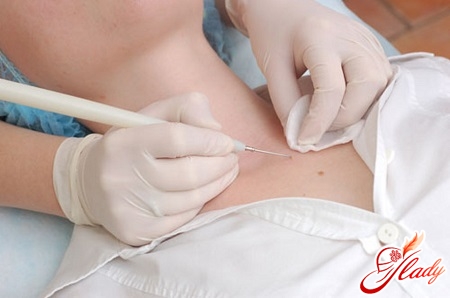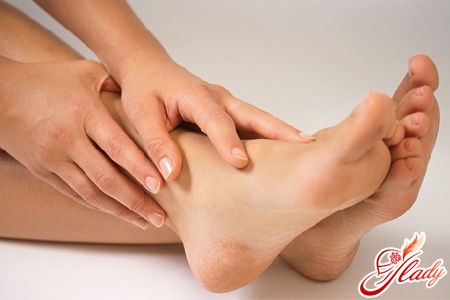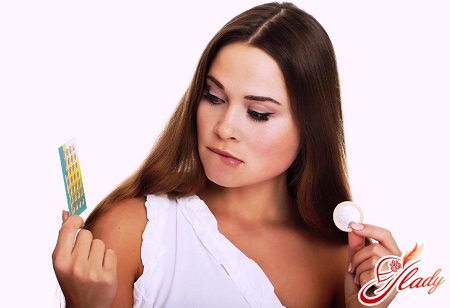
Contraception after childbirth - this topic is somired in stereotypes that many are difficult to determine. For example, among young mothers there is an opinion that in the first months after childbirth, if a woman is breastfeeding and menstruation is not getting better, an unwanted pregnancy can not arise. This is possible, but there is a list of conditions that must be met in this case.
Pregnancy after childbirth: myth or reality?
If immediately after birth the woman becomes pregnant again,then bearing a child can worsen both the well-being of the mother and the fetus. That is why very often such a pregnancy is interrupted by artificial means, but this, in turn, entails severe physical and psychological trauma. Doctors recommend to restore sexual activity not earlier than 3-4 weeks after the birth of the baby. But few people listen to these tips, often intimate relationships are renewed earlier. If after the delivery you did not have a menses, it does not mean that pregnancy does not threaten you. Do not hesitate to consult a doctor to choose the appropriate method of contraception. Below is a brief description of the main methods of contraception after pregnancy, taking into account the pros and cons of each. 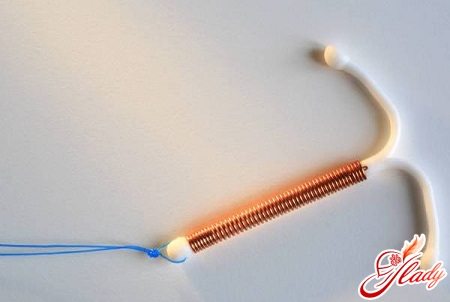
Condoms - the main method of contraception
Male condoms are probably the easiest of them.all existing methods. All that is required is just to have them at hand at the right time. If this method is used correctly, then experts guarantee a reliability of about 98%. The use of male condoms is suitable for you if:
- you have no desire or ability to take hormone pills or other drugs;
- you continue to breast-feed the baby;
- when using various intra-vaginal contraceptives, you do not experience any discomfort;
- do you smoke.
It is better to abandon this method if:
- you are allergic to latex (by the way, there are condoms in which other material is used);
- you do not want to interrupt caresses in order to take advantage of this remedy.
Female condoms are inserted into the vagina in such a way.so that the outer edge remains outside, that is, around the labia. When used properly, the level of protection against unwanted pregnancy is 95%. The use of female condoms is suitable for you if:
- hormonal drugs are taboo for you;
- you continue to breast-feed the baby;
- you do not feel uncomfortable when using intravaginal remedies;
- do you smoke;
- you want to protect yourself from diseases that are sexually transmitted.
It is better to abandon this method if:
- you do not want to use intravaginal contraception;
- you do not want to interrupt the sexual act.
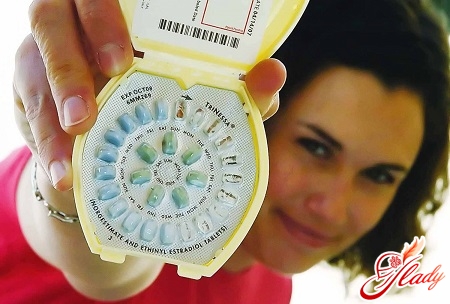
Diaphragm (vaginal cap)
Vaginal cap in something similar tocondom: a thin rubber band is stretched over the elastic band. Before using, you need to contact a specialist to determine which size is right for you. The diaphragm should be inserted into the vagina before the onset of sexual intercourse, so that one of its edges is located under the pubic bone, and the other - near the posterior vaginal vault. Thus, a kind of obstacle is formed that does not allow spermatozoa to enter the uterus. The diaphragm should be removed from the vagina 3-4 hours after sexual intercourse. With proper use, they can provide protection of about 92-96%. Vaginal diaphragms and caps can be used if:
- you do not want to drink hormones;
- you are breastfeeding your baby;
- when using intravaginal drugs, you do not feel discomfort;
- do you smoke.
Do not use the cap if:
- you do not want to use vaginal contraceptives;
- you are allergic to latex or spermicides;
- you are uncomfortable using a spermicidal gel or cream;
- you are not going to interrupt caresses for the use of protective equipment;
- you tend to have infectious diseases of the reproductive system, especially the bladder;
- your crotch muscles are weak.
Birth control pills
Combined oral contraceptives containestrogen and progesterone. Such pills should be taken on a course of 21 days (daily), after which to arrange a break for 7 days. This method of contraception suits you if:
- you do not want to use this method of contraception, which must be applied in advance;
- hormonal contraceptives are not forbidden to you;
- critical days are painful;
- the menstrual cycle is irregular;
- during menstruation you have heavy bleeding;
- you have a hard time carrying PMS;
- you are prone to acne;
- you do not smoke.
Do not take these drugs if:
- you refuse to take hormone pills;
- you continue to breast-feed the baby;
- your age is more than 35 years, while you smoke or got rid of this habit less than a year ago;
- you have heart or vascular disease;
- it is difficult for you to take medication regularly;
- you do not want to change your cycle of menstruation for a certain period;
- you have breast cancer or you got rid of it 5 years ago;
- you suffer from a complicated or usual form of diabetes for more than 20 years;
- you are overweight;
- sometimes you are concerned about migraines;
- you are ill with gall bladder or liver diseases and take medications.
The gestagenic birth control pills, or mini-pills, must be taken constantly - every day. These tablets contain only progestogen. You can use this contraceptive if:
- you can take hormone pills;
- your menstrual cycle is irregular;
- you continue to breast-feed the baby;
- critical days are painful for you;
- you do not want to use contraception in advance;
- you are over 35 and smoke;
- you have a hard time carrying PMS.
Do not take this hormone drug if:
- you can not drink hormone pills;
- you find it difficult to take regular medications;
- you have had breast or liver cancer;
- you cut out the ovarian cyst;
- you suffer from vaginal bleeding between critical days;
- you are familiar with the problem of ectopic pregnancy.
The reliability of both methods of contraception is 99%. 
Contraceptive Injection and Band-Aid
Contraceptive injections can be done for a period of 12 or 8 weeks. To do this, the hormonal contraceptive is administered intramuscularly, and it gradually penetrates into the blood. You can make yourself such injections, if:
- you can take hormonal drugs;
- you are breastfeeding;
- it is difficult for you to take pills every day;
- at least a year you are not going to become pregnant;
- do you smoke;
- you are severely enduring critical days and suffer from PMS;
- you want to be protected for a long time;
- you do not mind if you stop going menstruating.
It is better to give up hormonal injections, if:
- you can not take hormonal drugs;
- you are afraid of injections;
- at least a year later you plan to become pregnant;
- you have a sick liver and problems with blood vessels;
- you are sick or cured of breast cancer 5 years ago;
- after sex you have bleeding;
- you suffer from diabetes for a long time;
- you are afraid to gain excess weight (about 3 kg).
The contraceptive patch secrete a dose of estrogen, which enters the bloodstream through the skin. It needs to be changed every 7 days. Such protection is suitable for you if:
- you can take hormonal drugs;
- you are painfully borne by menstruation and PMS;
- it is difficult for you to take regular pills;
- you do not smoke;
- you have heavy bleeding.
It is better not to use a band-aid if:
- you are not allowed to take hormonal drugs;
- you are breastfeeding your baby;
- you suffer from heart diseases, liver and gall bladder diseases, obesity;
- you are the owner of sensitive skin;
- you often have migraines;
- you have acute diabetes;
- you in parallel accept still any preparations.
The guarantee of protection against unwanted pregnancy in both cases is about 99%. 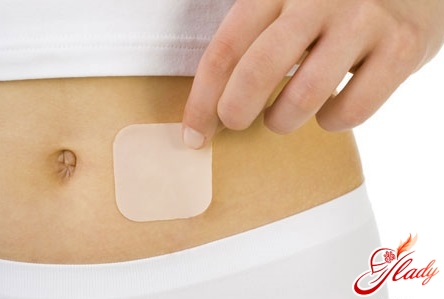
Intrauterine device and spiral
The intrauterine system is a smallplastic device, which is introduced into the body of a woman for 5 years. It allows the progestogen to be dosed into the blood. Such a remedy is suitable for you if:
- you can take hormones;
- you are breastfeeding;
- it is difficult for you to take regular pills;
- you are not going to get pregnant again in the near future;
- you suffer from profuse painful bleeding;
- you are satisfied with such method of contraception, which stops the monthly.
It is better to refrain from the intrauterine system if:
- you are prohibited from hormones;
- you suffer from a venereal or infectious disease;
- you have an abnormality in the structure of the uterus or a bad smear;
- you have a sick heart, a liver;
- you are cured or have breast cancer.
An intrauterine device, or spiral, canbe in the uterus from 3 to 10 years. The spiral prevents the penetration of spermatozoa or, in extreme cases, the attachment of a fertilized egg to the wall of the uterus. A spiral can be used if:
- you are breastfeeding;
- it is difficult for you to take regular medications;
- you do not plan to become pregnant the next few years.
Do not put a spiral if:
- you are allergic to copper;
- you have an abnormality in the structure of the uterus and you have a bad smear;
- you have venereal or infectious diseases;
- the months are heavy and painful;
- you are afraid that during critical days the bleeding will intensify.
Both remedies can provide more than 99% protection against unwanted pregnancy.
The natural way of protection
This method of protection from unwanted pregnancy provides that you yourself will consider ovulation and avoid at this time of sex. This method of protection is suitable for you if:
- you can not take hormonal drugs;
- you are breastfeeding your baby;
- your menstrual cycle is irregular;
- it is not difficult for you to follow the cycle, excretions and urine daily;
- you do not want to use contraceptives, which must be provided in advance.
It is better not to take risks and not use this way if:
- you are in a decree and it is difficult for you to monitor all indicators (excreta, urine, cycle) or there is no desire to do so;
- you need more reliable contraceptive protection.
It is difficult to say how effective this method is,because it all depends on the method you selected and the quality of the count. If all the calculations are correct, then this can provide you with protection up to 99%. It is best not to count and not trust natural protection, but consult a specialist. To hope that by increasing the interval of breastfeeding, you definitely will not become pregnant, it is not worth it. If not in a couple of months, then one year after childbirth, you must choose a method of protection, if you still continue to practice breastfeeding. To do this, you need to consult a specialist, so that the selected contraception after delivery is reliable.





